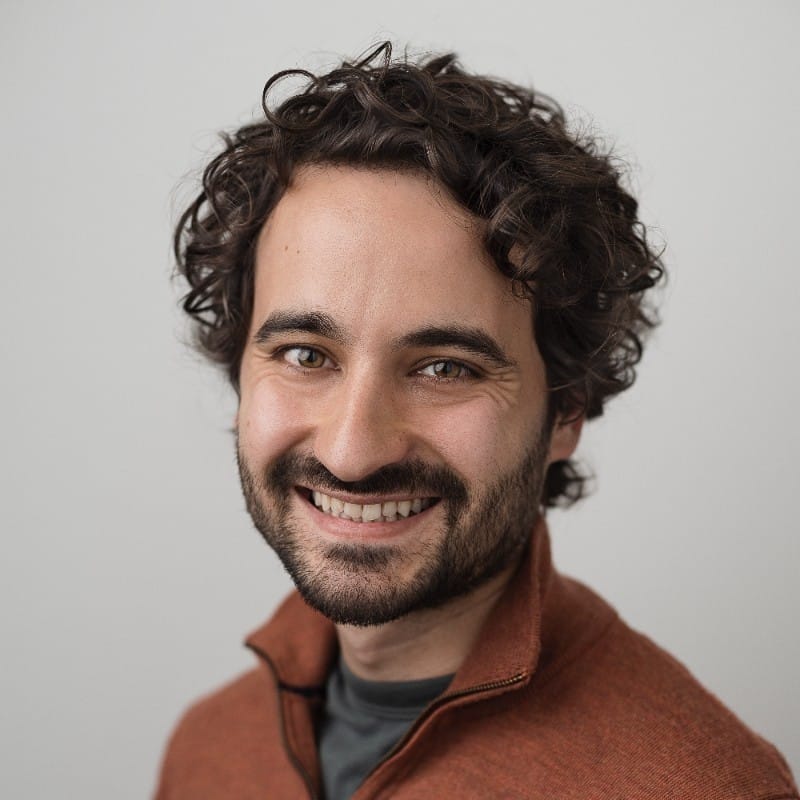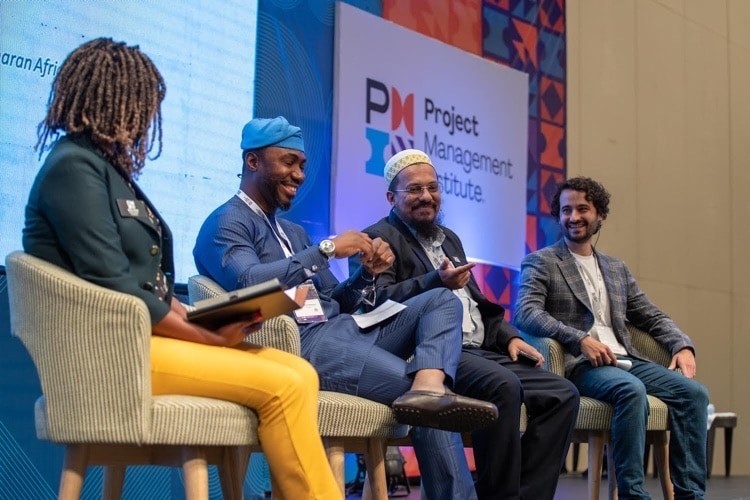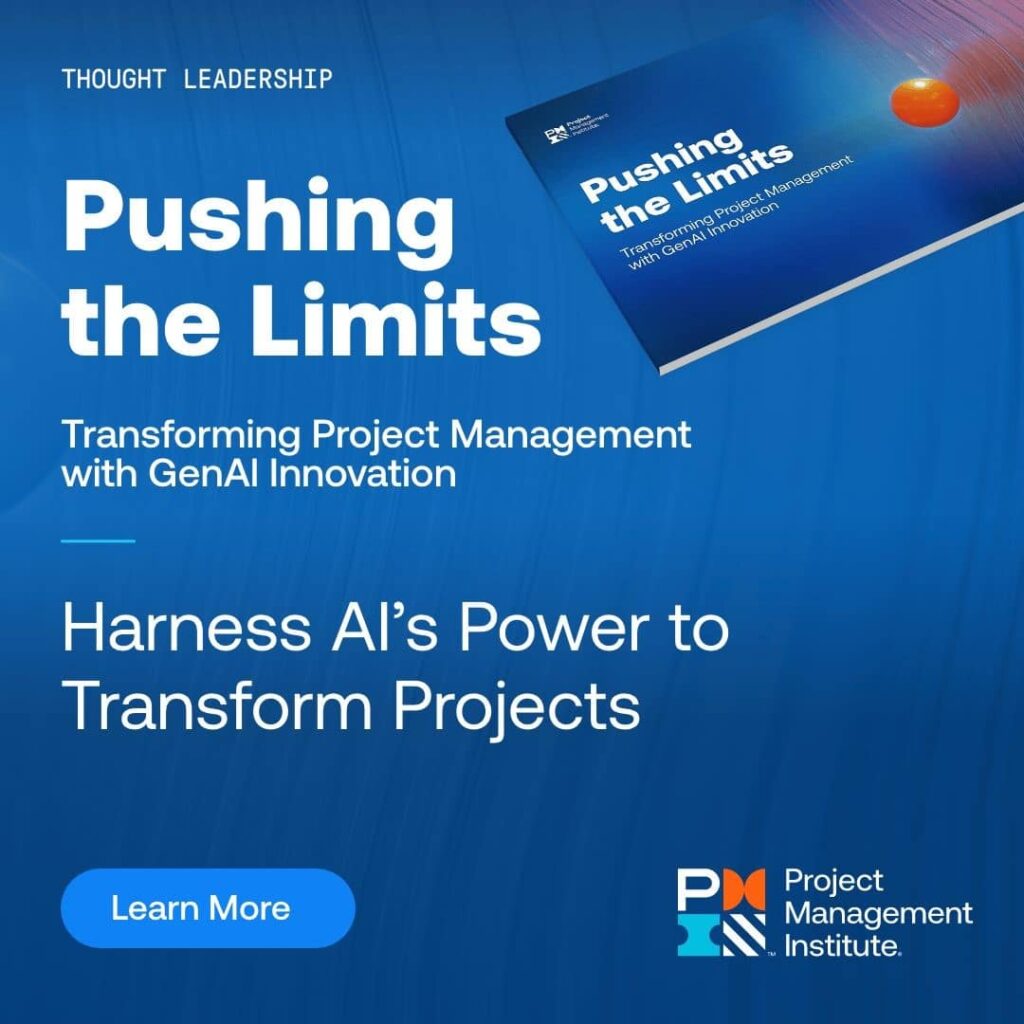
Samuel Pownall, as part of the Thought Leadership team in the Project Management Institute (PMI), is at the forefront of a revolution in the way projects are conceived, managed, and delivered. PMI’s Thought Leadership team is tasked with shaping the future of the industry. Working alongside a multi-disciplinary team of researchers and subject matter experts, Samuel’s insights offer a fascinating glimpse into the evolving landscape of project management.
As arguably the largest Project Management association in the field, with an overall global membership of 738,000 and its popular chapters, operating in every continent on the globe, those following the PMI’s progress are likely to have seen the recent moves towards a strategic overhaul of the organization as it prepares itself for a new and exciting era of project management.
Samuel Pownall is part of that strategic rebrand and his appointment within the Thought-Leadership team, led by Edivandro Conforto and attached to the office of the CEO, provides clear evidence of the stature of his role and the importance of his contribution to the new direction of the PMI.
It is an interview that I have eagerly anticipated, having followed Samuel’s research work, since his time working with International Consultancy PwC and more recently as one of the main authors of the joint APM and PwC industry research paper The Golden Thread.
Samuel’s journey to the forefront of project management is anything but conventional. A self-described late entrant to the corporate world, he embarked on his professional career at the age of 27, having spent his earlier years exploring the world and pursuing a diverse range of interests, including acting, childcare and social care.

But having settled into his career in research, he’s experienced remarkable growth and achievements. I ask him how he decided on this career path, and why project management.
“I always had an interest in research,” he says. “My research career started in the field of ecosystems and their impact on human health.” And it was this interest, coupled with a growing fascination for the complex organizational challenges around both large and small-scale projects, that led him to the world of project management and PMI.
“Joining the PMI Thought Leadership team was such an exciting opportunity,” he says. “I knew I was joining an organization that prioritizes research and has a strong strategic vision for it. But what really drew me in was the incredible talent on the team. Together, we’re exploring new ideas and setting the stage for exciting developments in project management.”
Samuel and the thought leadership team’s role at the PMI is to harness the power of research to drive innovation in project management. He emphasizes the importance of understanding the evolving needs of organizations and the challenges they face. “We need now, more than ever, to shine a light on the project industry and promote its importance to the world,” he says. “We need to show how it can be used as a vehicle to solve the big issues facing society.”
One of the most significant trends that the thought leadership team is tracking is the increasing adoption of artificial intelligence (AI). While AI offers immense potential, it also presents complex challenges. “We need to demystify AI and show how it can be applied to real-world problems,” he says. “By sharing practical examples and best practices, we can help organizations harness the power of AI to improve their project outcomes.” To date, Samuel explains, this has been challenging to achieve, as practical use cases have been limited and their effects are not yet widely visible.
“The arrival of platforms like Chat GPT, have opened up the technology, and democratized it within the industry. Suddenly we have the opportunity to actually see and learn how it is being applied to everyday projects and begin to codify it”.

It is a watershed moment for the project management industry, like so many other industries that are taking their first teetering steps towards full AI and digital implementation. As the technology opens up, it is now the practitioners within the industry that are driving much of the change and rapid uptake of the new technology. And to a significant extent, it is the organizations that are now having to play catch up.
However, Samuel is quick to point out that technology is only one part of the equation. “Culture, leadership, and individual skills are critical to project success,” he explains. “By understanding the psychological and social factors that influence project outcomes, organizations can create more effective project teams and improve overall performance.”
One of the challenges facing the industry is the traditional focus on the “iron triangle” of time, cost, and scope. Samuel argues that this long-held narrow perspective is insufficient to capture the full complexity of modern projects. “Project success needs to be redefined to include far broader factors, grounded in the organization’s unique context and aligned with its strategic goals” he says.
And although Samuel confesses to not being an expert on AI, he believes that the integration of AI into project management is a major step for the industry and one that will redefine projects as we know them. However, he cautions that AI should be used as a tool to augment human capabilities, and not replace them.
“AI can help us to make better decisions, but it can’t replace the human touch,” he says. And as an industry we still need to better articulate and demonstrate what these new and emerging technologies can do for the industry. And the specific ways that it can be applied.
In a world increasingly dominated by technology, it’s easy to overlook the importance of soft skills. However, Samuel argues that these skills are more critical than ever. “What we call Power Skills at PMI; skills like effective communication, leadership, and problem-solving are essential for project success,” he says. Even more so the research is demonstrating the cultural context that projects are operating in how this can determine project performance. “These human factors, and cultural aspects are what in reality really impact a project’s ultimate success”
Samuel has been involved in some of the industry’s most important and well-respected research projects. And Samuel underlines that such research is needed to help attract interest and funding into the project industry as well as support the governments initiatives to promote the profession. The political implications for effective project delivery can be seen around the world and for most major economies as well as in developing countries projects are providing a significant contribution to GDP.
I ask what his focus is now, as he begins his new role with the PMI, “Our team is working hard on creating cutting-edge perspectives that will contribute meaningfully to solving problems and provide solutions to the global community”. He continues “We are also committed to obtaining a diversity of opinions and contributors, to represent all voices of the project management profession. So, my team and I will continue to interview a wide range of practitioners and leaders working on projects. Being able to recognise and evaluate the critical impact that people, leadership and culture plays on the success of projects”.
Given the breadth of the industry, I ask how his work can remain relevant, and how he can influence the time dissemination of the insights that he collects.
“There is a lot going on in the space right now”. Samuel reflects. “The current rate of change is unprecedented.” It is a major task to report on an industry moving so quickly, let alone stay ahead of it with research. Samuel states “what helps is that we are able to draw on similarities between project organizations. So, our findings are often applicable to projects operating in different places, or sectors, but that share common aspects, such as infrastructure, risk tolerances or leadership styles. But we always emphasize that it is crucial to consider how these findings apply in the specific context of your organization”. Getting to really understand the differing cultural context is crucial. This plays a huge factor in project outcomes and is incredibly unique from project to project.
I ask Samuel, what are some of the big trends that he is seeing now and that he anticipates will be big for the project profession in coming months and years? “PMI has recently released the Global Project Management Job Trends 2024. This shares some of the key trends project professionals should be aware of, including AI-driven digital transformation, hybrid work models, a strong focus on continuous learning, as well as a growing need to deliver on sustainability.”
As we reach the midway point of our conversation I want to know how the research activities are helping in the PMI’s endeavors to transform the industry. I note the PMI’s objective of maximizing project success. Samuel is emphatic in the ways that research can support in attaining the mission. “Our research can inspire and provide strategic direction for organizations across the sector to help transform their organizations and position them for long-term growth”, Samuel continues, “And by providing this critical insight, we want to equip project professionals with high quality and actionable recommendations to drive individual growth, project success, as well as to advance the profession.”
Samuel states this is why he was so excited to join the Thought Leadership team at PMI. “We know that if the work that we are doing is able to move the needle, even just a fraction, in helping to improve project success, the transformative effect across communities and industries will be profound.” Samuel continues “Project Management is one of the few professions that directly touches on so many aspects of societal development”. Samuel added, “For example, take the UN’s 17 Sustainable Development Goals (SDG), project management will be crucial for their delivery.”
I ask Samuel how he copes with what seems to be a very intense career? “I have a lot of interests outside work, and on reflection they really compliment my work and career” I am intrigued. Samuel explains that he is an actor heavily involved with the UK Improv scene.
“It’s an absolutely brilliant pastime that I would recommend to anyone in a professional or corporate role” Samuel enthuses. “It teaches you to embrace failure, welcome uncertainty, and listen without judgment”. He continues, “as well as teaching resilience in the face of uncertainty – such as stepping in front of a packed audience without a script!” Having interviewed a range of professionals in this highly pressured field, I can attest to the need for resilience and a calm head during stressful moments. And it is this resilience and unwavering focus that I see in people that are succeeding in their careers.
I ask Samuel what most excites him about his role going forward, and he circles back to his ability to truly make a difference for the profession and to society. “There is so much for the profession to address,” He states, “with the advent of AI and new technology, the profession is looking to associations like the PMI to help them navigate and to deliver the very best in terms of best possible project outcomes”
I ask Samuel how professionals in the industry can best stay informed. His top advice? ‘Stay connected with peers from right across the industry.’ But Samuel emphasizes that practitioners don’t need to be experts in everything. Instead, he advises. “Choose a specialist area that excites you and really immerse yourself in it. Understand not just the project management trends, but also the broader landscape—what policies are shaping it, what research is emerging, and make a habit of reading high-quality insights from leaders and innovators in the field.”
Samuel goes on to say that it is not only practitioners that face the problem of being overwhelmed by the pace of development. “Organizations themselves often face the same issues. Here my advice is to bring in the expertise slowly and only when it is needed on a project,” Samuel continues “Having all the anticipated resources from the start is an easy way to overload your project. The more modern approach is to call on the expertise when you need it.”
Looking at some of the other challenges facing the industry, Samuel states that “The challenge is for the industry to reframing what ‘project success’ actually is for organization”, he elaborates further. “We need to do more work to fully understand what drives success and how we fully codify it as a profession.”
As we come to the end of our discussion, I am interested to know what Samuel’s priorities are for his new role and what else is on the horizon for him professionally? Samuel smiles “I am still very new to the role, so I’m working with my team to set those priorities for the future. Our team is closely engaging with organizations and understanding their needs and providing the insights they rely on.” Sam continues, “Our focus is delivering the strategic information that will allow them to make the best decisions.” Samuel will also be prioritizing research into PMOs and their capabilities, which is a very important area for the profession.
My final question is what Samuel has in terms of hopes for the profession in the future. “We want the world to recognise the growing capabilities of the profession, and for those working in the profession to continue to benefit from the opportunities that are opening up.” Samuel continues, “we know that certain skills will be in high demand in coming years, and we want to make sure that those in the industry have greater insights on not only what they will be, but exactly how to implement them for the benefit of successful project delivery.”
As the project management profession continues to evolve, it is essential to adapt to the changing needs of the industry.
For those aspiring to make a significant impact in the field of project management, I’ve summarized Samuel’s advice below:
· Stay connected: Network with other professionals, attend conferences, and engage in online communities.
· Specialize: Focus on a specific area of expertise, such as risk management, scheduling, or project finance.
· Embrace learning: Stay up to date on the latest trends and technologies. And to find out who are the thinkers in your area of the project space.
· Develop your soft skills: Effective communication, leadership, and problem-solving skills are essential for project success. Not only will they continue to be in demand, but they are not easily replaced by the approaching technology.
· Make a difference: Use your passion, skills and knowledge to address the big challenges and create a positive impact on society.
And Samuel’s general advice for the industry:
· Stay ahead of the curve: Adapt to new challenges.
· Pay Attention to Culture and People: Ensure that project management remains a vital and rewarding profession.
· Redefine Success: Recognise the evolving requirements and decide how best to achieve both the desired output and reward.
· Better Strategic Decision Making: Understand the insights, information and learning need to make the right decisions for projects.
As the future of project management continues to reveal itself, professionals such as Samuel remain at the forefront of our understanding of this dynamic landscape shaped by technological advancements, shifting organizational needs, and evolving global challenges. Guiding the industry to fully understand these trends and embracing innovation, and by doing so ensuring the profession means to succeed and those within it have the tools to thrive.
Samuel Pownall, is the recently appointed Thought Leadership Specialist, reporting to the Office of the CEO, for the Project Management Institute. To find out more about the work that Samuel and the Thought Leadership team are involved in with you can access PMI Thought Leadership, PMI BrightLine, or to any one of the PMIs social media outlets. Samuel can be reached via his LinkedIn account.
DOWNLOAD THE LATEST THOUGHT LEADERSHIP REPORT HERE

Swanwick House, 22 Towcester Road, Old Stratford, Milton Keynes, MK19 6AQ, UK
© 2025 Project Management Global. All rights reserved | Privacy Policy